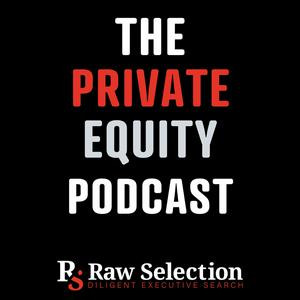🧠 Episode Summary: In this insightful episode, Alex Rawlings is joined by Brian Reavell, Founder of R-Squared Advisors and seasoned Private Equity Operating Partner, to dive deep into the world of go-to-market (GTM) strategies. Brian shares a comprehensive GTM playbook for PE-backed portfolio companies—spanning from due diligence and customer segmentation to talent evaluation and post-investment execution.With over two decades of commercial leadership and consulting experience, Brian explains why private equity firms often overestimate internal talent, underestimate customer orientation, and misalign incentives—leading to missed growth targets. Packed with case studies and actionable frameworks, this episode is a goldmine for anyone looking to drive scalable and sustainable sales growth within a PE-backed environment.⏱️ Timestamps:00:00 – Introduction to Brian Reavell and today's GTM focus 01:26 – Common mistakes PE firms make around organic growth assumptions 03:21 – The three critical GTM pillars: Ideal Client Profile, Talent, and Segmentation 05:38 – Why talent is the most overlooked area in due diligence 08:00 – Assessing sales talent beyond resumes and black books 09:28 – Quantitative vs. qualitative approaches to evaluating salespeople 11:20 – EQ, IQ, and AQ: The key characteristics to assess in talent 13:18 – Building a GTM strategy post-investment: Process & execution 14:45 – Case Study: GTM transformation in a $4B building products distributor 16:56 – Impact of role design and customer segmentation on profitability 18:50 – $500M top-line and $100M EBITDA opportunity unlocked 20:42 – Managing change in founder-led businesses 23:07 – Overcoming resistance at field and leadership levels 24:53 – Case Study: Cultural and GTM integration in a K-12 education platform 27:43 – Creating flexible but standardized playbooks 29:35 – Assessing and top-grading sales and marketing leadership 31:02 – Succession planning and commercial leadership turnover 32:54 – What creates board-level confidence in GTM leaders 33:52 – Brian’s top reading and learning resources 35:19 – The First 90 Days, AI, and making tech an enabler 36:17 – How to connect with Brian Revelle📚 Resources Mentioned:Winning Moves & Intelligent Equity by Dan KreminsThe First 90 Days by Michael WatkinsChatGPT and AI tools for sales enablement and productivity📨 Connect with Brian Reavell: Email:
[email protected] Company: R-Squared Advisors (not linked in transcript, assumed domain)Raw Selection partners with Private Equity firms and their portfolio companies to secure exceptional executive talent. We focus on de-risking executive recruitment through meticulous search and selection processes, ensuring top-tier performance and long-term success.🔗 Connect with Alex Rawlings on LinkedIn: https://www.linkedin.com/in/alexrawlings/ 🌐 Visit Raw Selection: www.raw-selection.com


